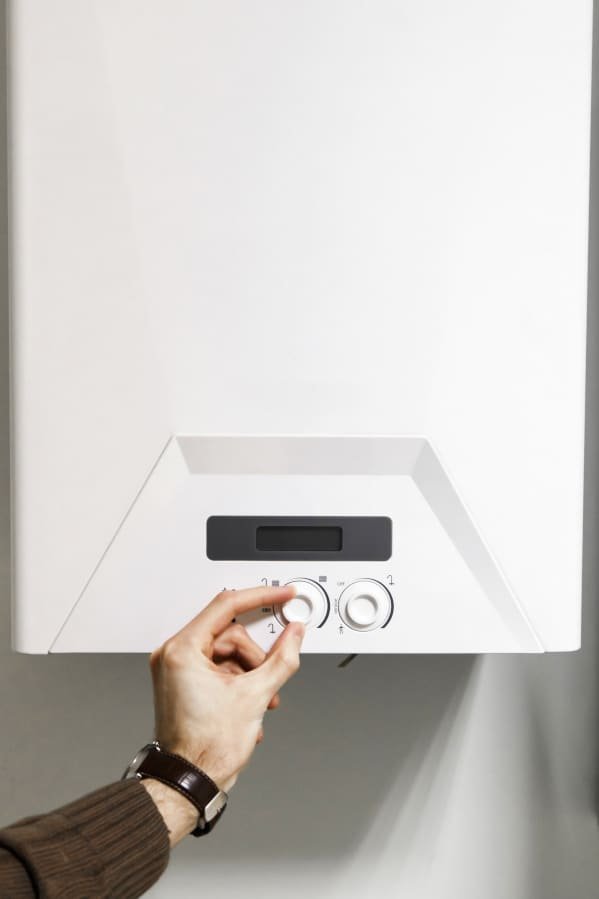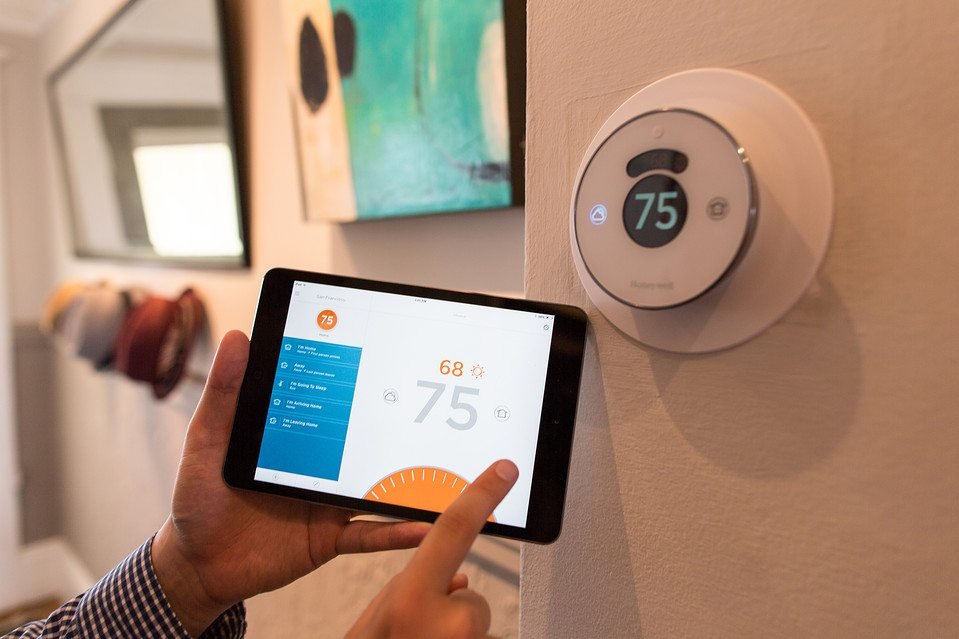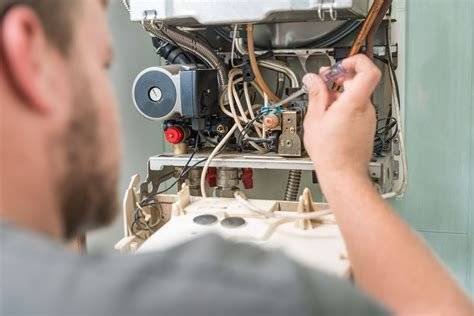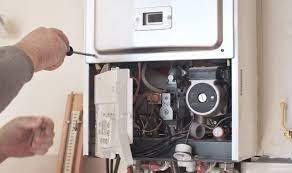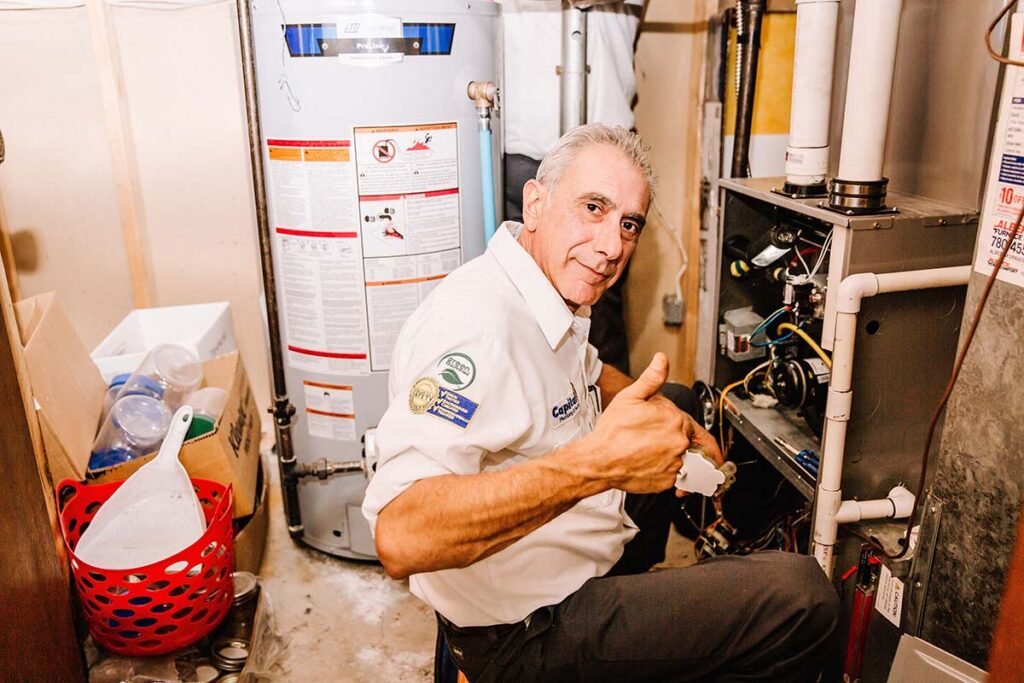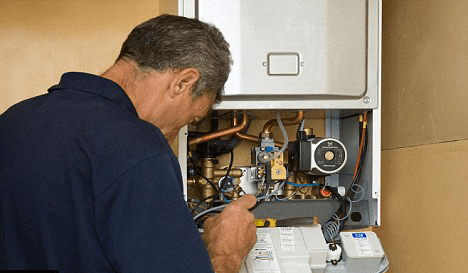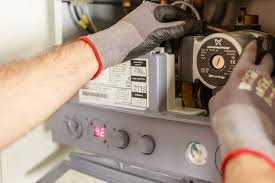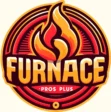Furnace Installation Wetaskiwin - Your Reliable Heating Specialists
Furnace Pros Plus is your trusted partner for all your heating needs. With years of experience, we focus on delivering superior heating options to keep your home warm and comfortable. Our team of competent specialists devote themselves to providing expert furnace setup, upkeep, and repair work services. We comprehend the importance of an effectively working heater, specifically during the cooler months. We focus on performance, price, and consumer fulfillment in every job (huge or little). Whether you need a brand-new furnace, a routine check-up, or emergency repair work, rely on Furnace Pros Plus for reputable and efficient heating services that guarantee peace of mind and convenience.
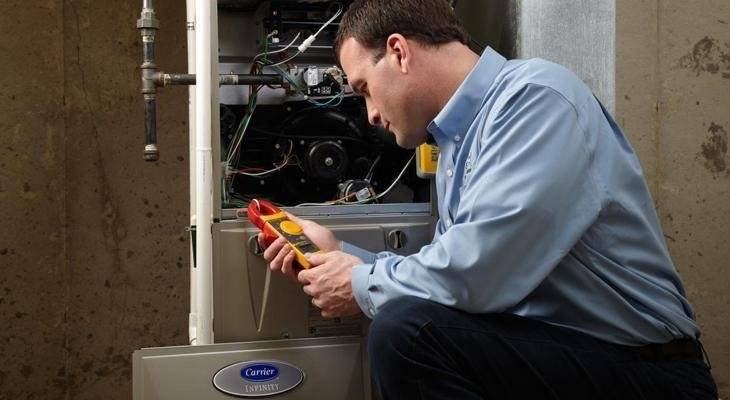
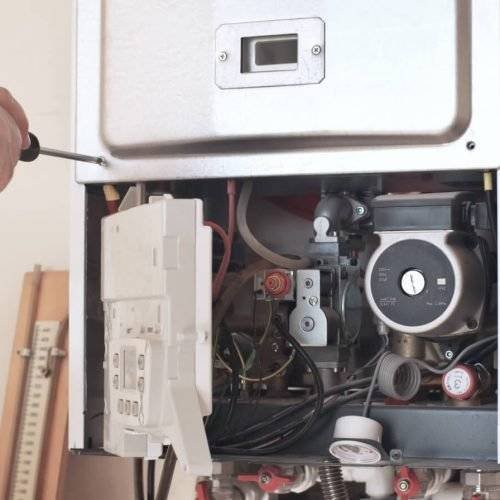
Who Are We?
Residential Heating Installations and Repairs
At Furnace Pros Plus, we are Wetaskiwin’s leading location for all your domestic furnace installations. With a dedication to quality and a passion for ensuring your indoor benefit, we are a relied on name in the heating & cooling industry.
Got a heater emergency? Contact us 24/7 at (587) 409-5683
For several years, we have committed ourselves to offering superior furnace installations, maintenance, and repairs to homeowners in Wetaskiwin. Our team of incredibly competent specialists boasts thorough experience and understanding in managing a wide array of heating units, making us the go-to specialists in Alberta.
Relating to furnace services, we take pride in offering efficient and reputable services, customizing our options to your specific requirements. If you need a brand-new furnace for your home, our team will guarantee a seamless installation that ensures your space stays comfortable and warm.
Regular tuneups is vital to the durability and performance of your furnace, and we provide in-depth maintenance strategies to keep your system running smoothly. Our committed specialists carry out thorough assessments, determining and dealing with any possible problems without delay.
In times of unexpected breakdowns, our swift and efficient repair work services are here to rescue you from the cold. We comprehend the urgency of heating emergency situations and are easily standing by to provide immediate assistance.
At Furnace Pros Plus, we are more than merely a heating contractor; we are your partners in producing a comfortable and warm environment for your home in Wetaskiwin. Trust us for extraordinary service, quality workmanship, and a dedication to your complete fulfillment. Your comfort is our priority, and we look forward to serving you.
How can we help you?
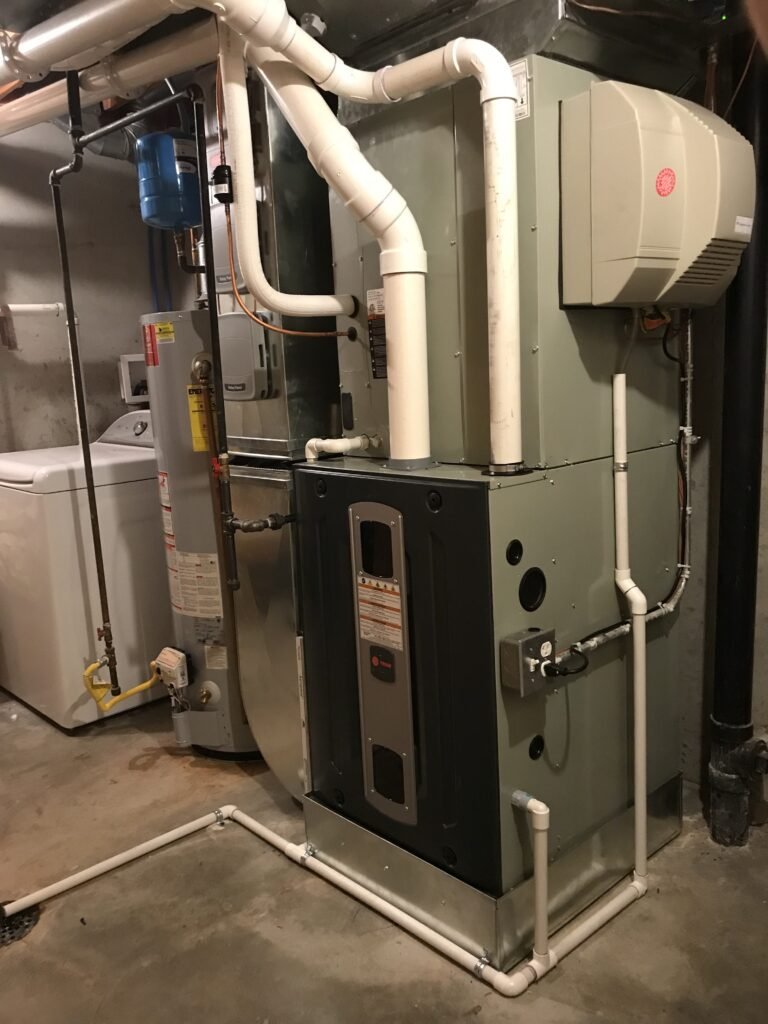
Comprehending the Cost of Installing a Modern Furnace
Intro
A working furnace is necessary when it concerns maintaining a comfortable and warm home during the cooler months. However, there comes a time when installing a brand-new furnace is inescapable.
Comprehending the expenses associated with this procedure is important for property owners to plan and budget plan appropriately. This thorough guide checks out the numerous aspects affecting the cost of installing a brand-new furnace.
Factors Affecting Furnace Installation Costs
Kind of Furnace:
- Gas Heating Systems: Popular for their performance, they usually cost more in advance however provide lower operating costs.
- Electric Furnaces: They are cheaper than gas heaters. However, electric models tend to have greater functional expenses due to electricity prices.
- Oil Furnaces: These are less typical and can be more expensive due to the cost of oil.
Furnace Size and Capability
- Square Footage: The size of your home directly affects the capacity needed for the furnace.
- BTU Rating: Higher BTU rankings correspond to more effective heaters, which can increase the cost.
Effectiveness Ratings
Annual Fuel Utilization Effectiveness (AFUE):
Higher AFUE rankings indicate better performance however likewise included a higher cost.
Brand name and Quality
Top-tier brand names typically command greater prices due to their track record for quality and durability.
Installation Intricacy
- Existing System: Updating from an old system might require extra work and cost.
- Ductwork: The condition and design of existing ductwork can affect setup complexity.
- Ease of access: Difficult access to the setup website can increase labour expenses.
Labour Costs
Labour expenses vary by area. In addition, the complexity of the setup can affect labour expenses.
Additional Costs to Think About
- Permits: Some regions require permits for furnace setup.
- Inspections: City laws might require post-installation examinations for security compliance.
- Thermostats: Updating to a smart thermostat can incur extra expenses.
Average Cost of Furnace Replacement
While prices can vary commonly based upon the aspects pointed out above, here are some typical cost ranges for furnace setup:
- Gas Furnaces: $2,000 to $5,000.
- Electric Furnaces: $1,000 to $2,500.
- Oil Furnaces: $2,500 to $6,000.
These are rough quotes and can vary based upon particular home requirements.
Cost-Saving Tips.
Research study and Compare.
Obtain several quotes from various specialists to guarantee competitive rates.
Look For Rebates and Rewards.
Try to find energy performance refunds offered by energy companies or federal government programs.
Think About Long-Term Savings.
Purchasing a more efficient furnace can lower energy expenses in time.
Conclusion
Setting up a brand-new furnace is a substantial financial investment, and understanding the expenses involved is necessary for any house owner. By considering the type of furnace, setup complexity, labour expenses, and extra expenditures, property owners can better get ready for this necessary upgrade. Keep in mind to look for several quotes, check out available refunds, and think about long-lasting energy cost savings when choosing.
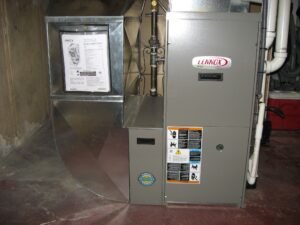
The Right Size Furnace for Your Home: A Comprehensive Overview
Intro
Choosing the right size furnace for your home is important for ensuring efficient heating and convenience during the cooler months. A heating system that’s too little won’t keep your house warm, while one that’s too big can cause unnecessary energy usage and irregular heating. This guide will help you determine the perfect furnace size for your home.
Comprehending Furnace Sizing: BTU and Effectiveness
We determine the size of a heater in British Thermal Units (BTU). One BTU is the energy needed to raise the temperature of one pound of water by one degree Fahrenheit. When choosing a heater, 2 crucial aspects contribute: the BTU ranking, indicating the furnace’s heating capacity, and its performance ranking, determined in Annual Fuel Utilization Effectiveness (AFUE).
Calculating Your Home’s Heating Requirements
You must determine your home’s heating needs to determine the correct furnace size. The calculation thinks about aspects like square footage, climate zone, insulation quality, window type, and house design. Typically, you need roughly 30-60 BTUs per square foot. However, this varies based upon your home’s particular attributes.
Climate Zone and Its Impact on Furnace Size
Your geographic place significantly influences the furnace size required. Homes in cooler areas, such as [place], require more BTUs per square foot than those in milder climates. Speak with a heating specialist for particular recommendations.
The Role of Home Insulation in Furnace Sizing
Great insulation reduces the amount of heat loss, implying you can select a smaller furnace. Examine your home’s insulation in the walls, attic, and windows. Updating insulation can be an economical way to reduce heating requirements.
Factors To Consider for Various Types of Heating Systems
There are numerous kinds of heaters, like gas, electric, and oil. Each type has distinct sizing factors to consider. Gas heaters prevail and efficient, electric heaters are more uncomplicated and much safer however typically more expensive to run, and specialists set up oil heaters where natural gas isn’t available.
Significance of Professional A/c Evaluation
An expert HVAC evaluation is indispensable. Professionals think about all variables, including ductwork and home design, to advise the optimum furnace size. They can perform a Manual J calculation, the industry standard for figuring out heating and cooling loads.
Energy Effectiveness and Cost-Effectiveness
Choosing a heater with a high AFUE ranking is important for energy performance and cost savings. Modern heaters have AFUE rankings between 80% and 98%, indicating the percentage of fuel converted into heating. While high-efficiency heaters are more expensive in advance, they can lead to substantial cost savings in the long run.
Attending To Common Misconceptions About Furnace Sizing
A typical misconception is that a larger furnace is constantly better. However, an oversized furnace can lead to brief cycling, where the furnace frequently turns on and off, decreasing performance and life-span. On the other hand, an undersized furnace struggles to heat your home sufficiently.
Long-Term Benefits of the Right-Sized Furnace
Selecting the right-sized furnace has long-lasting advantages, including consistent convenience, lower energy expenses, reduced carbon footprint, and less upkeep problems. It’s a balance between in advance expenses and long-lasting cost savings.
Conclusion: Making an Informed Choice
Choosing the right size furnace is a decision that affects your home’s convenience and energy performance for years to come. By understanding the basics of furnace sizing and looking for professional guidance, you can make an informed decision that makes sure optimum heating for your home.
Keep in mind, the secret to an efficient and comfortable home lies in choosing the right furnace and routine upkeep and considering other aspects like insulation and climate. With this thorough guide, you are well-equipped to pick the perfect furnace for your home, providing warmth and convenience for numerous winters.

Replace or Repair Furnace: A All-inclusive Overview
Intro
Deciding whether to replace or repair your furnace is a substantial decision for any house owner. The choice affects your immediate convenience and security and has long-lasting financial implications. This thorough guide will check out numerous aspects to think about, helping you make a notified decision.
Comprehending Your Furnace
Lifespan and Types
Furnaces usually have a lifespan of 15-20 years. The two primary types are gas and electric, each with various upkeep and functional expenses.
Indications of Trouble
Common indications that your furnace might need attention consist of unusual noises, irregular heating, and increased energy expenses.
When to Think About Fixing Your Furnace
Repair work is typically the very best choice for small problems or heaters that are relatively brand-new and still under guarantee.
Cost-Effectiveness
Fixing can be more economical for small problems. However, frequent repair work may suggest a much deeper problem.
Ecological Effect
Repairs typically have a lower environmental effect than changing the entire unit.
When Replacement is the Very Best Alternative
You need to think about replacement if your furnace is near completion of its life-span, repair work are ending up being increasingly expensive, or if it could be more energy efficient.
Long-lasting Cost Savings
While the preliminary cost is greater, a brand-new furnace can be more energy-efficient, saving you money on energy expenses.
Technological Advancements
Newer models feature innovative innovation, such as wise thermostats, which provide better temperature level control and performance.
Weighing Your Options
Cost Analysis
Compare the cost of repair work in time versus the one-time cost of a brand-new furnace.
Energy Effectiveness
Examine how your existing furnace’s performance is affecting your energy expenses.
Home Worth
Think about how a brand-new furnace may increase the worth of your home, specifically if you prepare to offer in the future.
Professional Suggestions
Looking For Expert Viewpoint
Seek advice from HVAC specialists to assess the state of your existing furnace and get quotes for repair work and replacement.
Significance of Regular Upkeep
Regular upkeep can extend the life of your furnace, whether you decide to repair or replace it.
Conclusion
In conclusion, choosing to repair or replace your furnace depends upon numerous aspects, including age, condition, cost, and energy performance. By considering these aspects and looking for professional recommendations, you can decide that makes sure convenience, security, and financial vigilance for your home.
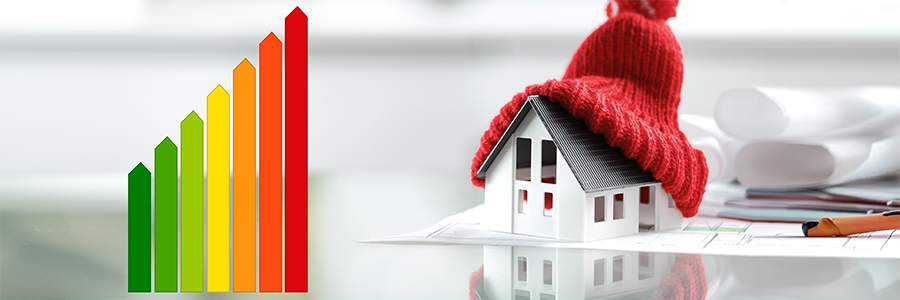
What Season is the Most Inexpensive to Replace Your Furnace?
Will a New Furnace Reduce Your House Insurance?
Intro
Home upkeep can be a substantial financial investment, specifically when it involves important systems like heating. Among the most considerable expenses property owners deal with is changing their furnace. However, timing this replacement can lead to substantial cost savings. This article checks out the very best season to replace your furnace, considering cost-effectiveness and practicality.
Comprehending Furnace Replacements
The Need for Replacement
Before delving into timing, it’s essential to comprehend why and when you need to replace your furnace. Common signs consist of frequent repair work, heating ineffectiveness, and the unit’s age (normally beyond 15-20 years). Changing an out-of-date or malfunctioning furnace improves heating performance and makes sure security and convenience during cooler months.
Factors Affecting Furnace Costs
Several aspects affect furnace prices, including the type of furnace, brand, capacity, and the complexity of setup. Seasonal need is another substantial aspect, typically overlooked, yet it plays an important role in figuring out the cost.
Finest Time for Replacement: Off-Season
Why Select Off-Season?
The off-season, primarily spring and early fall, is typically the most inexpensive to replace a heater. The need for heater is lower during these durations than during the peak winter season. Lower need typically results in more competitive rates from manufacturers and installers.
Advantages of Off-Season Replacement
- Lower Costs: Decreased need can lead to discounts and more customer working out power.
- Availability of Technicians: HVAC specialists are less busy during these times, ensuring more flexible scheduling and quicker setup.
- Adequate Time for Research study: The off-season provides property owners adequate time to research study various furnace models and alternatives without the pressure of immediate need.
Preparation Ahead
Utilizing the off-season needs planning. Anticipate the need for replacement and schedule it when the need is low. This insight saves money and prevents the trouble of a heater breaking down in the middle of winter season.
Winter season: The Peak Season
Difficulties of Winter Season Replacement
- Higher Costs: The need for furnace setup and repair work peaks during winter season, leading to greater prices.
- Busy Schedules: Discovering a specialist might be more difficult, and you may have to wait longer for a consultation.
- Emergency Replacements: If your furnace breaks down in winter season, you may have to select an instant replacement, which leaves little space for cost comparison or settlement.
Other Factors to consider
Energy Effectiveness and Rebates
Purchasing energy-efficient models might be more expensive in advance however can lead to long-lasting cost savings. Also, look out for refunds and tax credits offered for energy-efficient home enhancements.
Significance of Regular Upkeep
Regular upkeep can prolong the life of your furnace, delaying the need for replacement. It’s a vital aspect of home care that you need to pay attention to.
Conclusion
Timing your furnace replacement can lead to substantial cost savings. The off-season, particularly spring and early fall, is usually the most economical period for this financial investment. Preparation, considering energy performance, and maintaining your existing furnace can enhance expenditures and guarantee a warm, comfortable home.
Intro
Property owners typically contemplate whether updating their home appliances and systems can lead to cost savings on their home insurance coverage premiums. One typical question is whether installing a brand-new furnace reduces home insurance coverage expenses. This article delves into how a brand-new furnace setup may affect your home insurance coverage, offering insights into insurance plan, danger management, and possible cost savings.
Comprehending House Insurance Premiums
Before diving into the specifics of heaters and insurance coverage, it’s important to comprehend what aspects affect home insurance coverage premiums. Insurance provider assess numerous aspects, including:
- Property Age and Condition: Insurance Agents see more recent homes with upgraded systems as lower risks.
- Area: Geographic place and regional climate can significantly affect insurance coverage rates.
- Safety Features: The presence of alarms, smoke alarm, and other security devices can lower premiums.
The Effect of a New Furnace on House Insurance
Setting up a brand-new furnace in your home can have several implications for your home insurance coverage:
- Decreased Risk of Fire and Gas Leaks: Modern heaters with innovative security features minimize risks like fire or gas leakages. This danger decrease can be beneficial in the eyes of insurance coverage suppliers.
- Improved Energy Effectiveness: Newer heaters are typically more energy-efficient, leading to lower energy expenses and a decreased environmental footprint, indirectly impacting insurance coverage factors to consider.
- Boosted Home Worth: Updating to a brand-new furnace can increase your home’s market value, which may affect the coverage you need.
Prospective Insurance Discounts
Some insurance provider provide discounts for home enhancements that reduce danger. These may consist of:
- Protective Device Discounts: You may receive a discount if your brand-new furnace contains innovative security features.
- Green House Discounts: Some insurance providers supply special discounts for installing energy-efficient devices.
Documentation and Appraisal
To leverage a brand-new furnace setup for insurance coverage advantages, think about the following:
- Professional Installation: Make sure a certified professional installs your furnace, which can be a requirement for insurance coverage advantages.
- Keep Records: Keep all receipts and documents for the furnace purchase and setup.
- Inform Your Insurance Provider: Alert your insurer about the upgrade. They might require an assessment or extra documents.
Factors to consider Before Updating
While a brand-new furnace can provide advantages, think about the following:
- Cost vs. Advantage Analysis: Examine if the long-lasting cost savings on insurance coverage and energy expenses justify the preliminary cost of a brand-new furnace.
- Insurance Policy Review: Consult with your insurance coverage representative to comprehend how a brand-new furnace may particularly affect your policy.
Conclusion
Updating to a brand-new furnace can lower your home insurance coverage premiums by decreasing danger and enhancing your home’s security and performance. However, the effect varies based upon private insurance plan and the particular features of the furnace. It’s suggested to speak with your insurance coverage provider to comprehend the complete advantages and implications of a brand-new furnace setup.
Frequently asked questions
Q: How much can I save on my home insurance coverage by installing a brand-new furnace?
A: Cost savings vary based upon the insurance coverage provider and the particular features of the brand-new furnace. Seek advice from your insurance coverage representative for in-depth information.
Q: Exist any particular kinds of heaters that are more beneficial for insurance coverage discounts?
A: Furnaces with innovative security features, high energy performance rankings, and those that meet particular environmental requirements are typically more beneficial.
How to Get ready for a Heating System Installation
Setting up a brand-new furnace in your home is a substantial financial investment and a vital upgrade to your home. It enhances the convenience of your home and improves energy performance. Proper setup preparation is important to guarantee the setup procedure is smooth and worry-free. This article will guide you through the necessary steps to get ready for a heater setup.
Comprehending Your Heating Requirements
Assessing Your Area: The first step is to assess the size of your space and comprehend the heating requirements. A too-large or too-small furnace for your home can lead to ineffectiveness and greater energy expenses. Consulting with a heating professional to determine the right furnace size is vital.
Choosing the Right Furnace: There are numerous heaters, including gas, electric, and oil. Each has benefits and drawbacks; the choice depends upon your place, budget plan, and personal preference. Research study and speak with experts to make a notified decision.
Pre-Installation Preparation
Selecting a Qualified Installer: We can not overstate the importance of selecting a qualified and experienced installer. Try to find specialists with good evaluations and appropriate accreditation. They will guarantee a correct setup and guide you through the procedure.
Clearing the Area: Make sure the location where you prepare to set up the furnace is clear of any mess. A tidy location offers simple access to the setup team and speeds up the procedure. Remove any valuable or delicate items from the vicinity to avoid unintentional damage.
Getting ready for Downtime: Depending upon the complexity of the setup, your heater might be down for a couple of hours to a day. Plan appropriately, specifically if the setup is during cooler months.
Throughout Installation
Access to Your Home: Make sure the installers have simple access to your home, that includes ensuring that parking is available and a clear path to the furnace place.
Communication: Stay available to answer any questions the installers may have. Clear interaction can help deal with any problems rapidly and guarantee your setup goes as planned.
After Installation Checks
Examine the Setup: Once the setup is total, check the work with the installer. Make sure that the setup is total and that the location is tidy.
Comprehending the System: Have the installer describe the functioning of the brand-new furnace, including how to change filters and the basic troubleshooting steps.
Guarantee and Documentation: Guarantee you receive all necessary documents, including guarantee information and operating handbooks. Keep these files in a safe place for future recommendation.
Conclusion
Getting ready for a heater setup involves understanding your heating needs, choosing the right furnace, and selecting a qualified installer. By following these steps, you can guarantee a hassle-free setup procedure and take pleasure in the convenience and performance of your brand-new heater for years to come. Keep in mind, a little preparation goes a long way in ensuring a smooth and successful furnace setup.
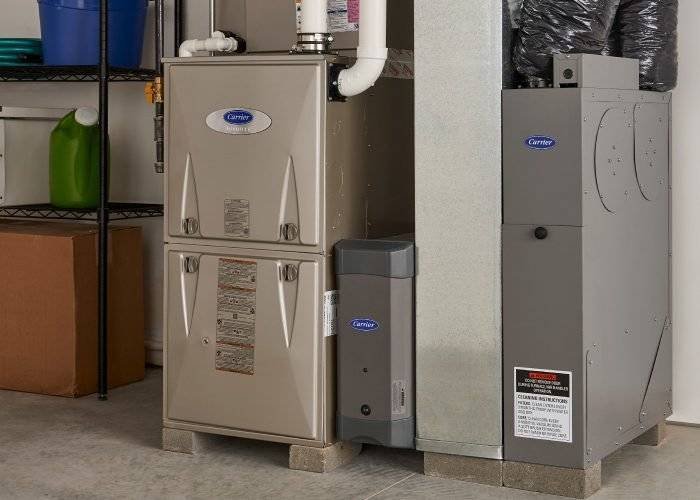
Our Work


